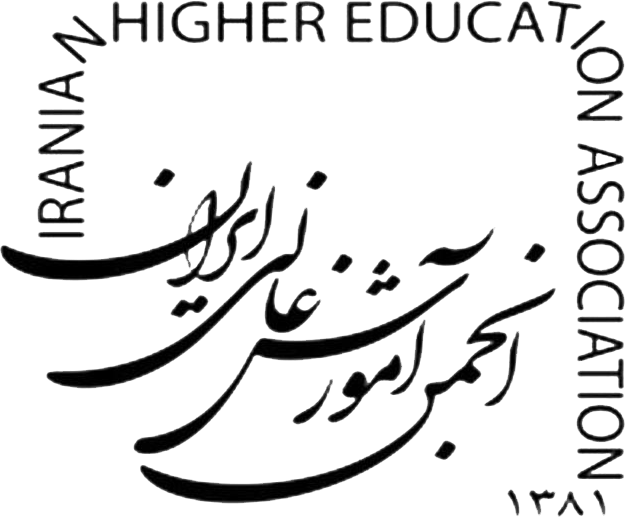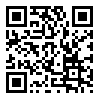Volume 16, Issue 3 (2024)
ihej 2024, 16(3): 21-44 |
Back to browse issues page
Download citation:
BibTeX | RIS | EndNote | Medlars | ProCite | Reference Manager | RefWorks
Send citation to:



BibTeX | RIS | EndNote | Medlars | ProCite | Reference Manager | RefWorks
Send citation to:
Amini Z, Afrassiabi R, Esmaeilishad B. Components of Empowering medical universities in dealing with educational black holes. ihej 2024; 16 (3) :21-44
URL: http://ihej.ir/article-1-2083-en.html
URL: http://ihej.ir/article-1-2083-en.html
1- PhD Student. Department of Educational Sciences, Bojnourd Branch, Islamic Azad University, Bojnourd, Iran.
2- Assistant professor, Department of Educational Sciences, Bojnourd Branch, Islamic Azad University, Bojnourd, Iran. ,Afrasiabi@bojnourdiau.ac.ir
3- Assistant professor, Department of Educational Sciences, Bojnourd Branch, Islamic Azad University, Bojnourd, Iran.
2- Assistant professor, Department of Educational Sciences, Bojnourd Branch, Islamic Azad University, Bojnourd, Iran. ,
3- Assistant professor, Department of Educational Sciences, Bojnourd Branch, Islamic Azad University, Bojnourd, Iran.
Abstract: (2250 Views)
Objective: Medical universities, as one of the largest management systems in the country, face numerous challenges in the field of education that can be recognized as ‘educational black holes’. The damages caused by black holes are multidimensional and serious, which can prevent universities from achieving long-term goals. Therefore, empowering medical universities as a key solution can be very helpful in dealing with these black holes. The purpose of this study is to determine components of empowering medical universities in dealing with educational black holes.
Methods: A qualitative approach was used to explain the dimensions and components of empowerment. The sampling was purposive and the data collection tool was interview. To this end, 20 semi-structured interviews were conducted with faculty members and education managers at medical universities. The duration of the interviews was between 30 and 90 minutes. The data were analyzed using qualitative content analysis by the use of MAXQDA 2020 software.
Findings: After conducting interviews and implementing and analyzing the data, 293 initial codes were obtained, which were formed by merging these codes into 48 subcategories. After combining and merging items with similar meanings, 16 categories and finally, 6 themes were extracted. The components obtained from the interview process include "Culture Engineering", "Infrastructure Planning and Strengthening", "Education Development Measures and Knowledge Management", "Organizational Structure Organization", "Effective Management", and "Governance in the Policymaking and Legal Affairs".
Conclusion: Medical Universities consist of educational, therapeutic, and health units, all three structures have an impact on education in some way, and separating these units from each other creates many challenges and problems in the field of education. The findings of the present study indicate that many factors are effective in the process of empowering medical universities to deal with educational black holes. Therefore, a holistic approach and adopting comprehensive and well-documented policies by policymakers and education managers to identify and deal with these black holes are important steps toward empowering medical universities.
Methods: A qualitative approach was used to explain the dimensions and components of empowerment. The sampling was purposive and the data collection tool was interview. To this end, 20 semi-structured interviews were conducted with faculty members and education managers at medical universities. The duration of the interviews was between 30 and 90 minutes. The data were analyzed using qualitative content analysis by the use of MAXQDA 2020 software.
Findings: After conducting interviews and implementing and analyzing the data, 293 initial codes were obtained, which were formed by merging these codes into 48 subcategories. After combining and merging items with similar meanings, 16 categories and finally, 6 themes were extracted. The components obtained from the interview process include "Culture Engineering", "Infrastructure Planning and Strengthening", "Education Development Measures and Knowledge Management", "Organizational Structure Organization", "Effective Management", and "Governance in the Policymaking and Legal Affairs".
Conclusion: Medical Universities consist of educational, therapeutic, and health units, all three structures have an impact on education in some way, and separating these units from each other creates many challenges and problems in the field of education. The findings of the present study indicate that many factors are effective in the process of empowering medical universities to deal with educational black holes. Therefore, a holistic approach and adopting comprehensive and well-documented policies by policymakers and education managers to identify and deal with these black holes are important steps toward empowering medical universities.
Type of article: Research |
Subject:
Special
Received: 2025/01/12 | Accepted: 2025/03/2 | ePublished ahead of print: 2025/05/3
Received: 2025/01/12 | Accepted: 2025/03/2 | ePublished ahead of print: 2025/05/3
Send email to the article author
| Rights and permissions | |
 |
This work is licensed under a Creative Commons Attribution-NonCommercial 4.0 International License. |





